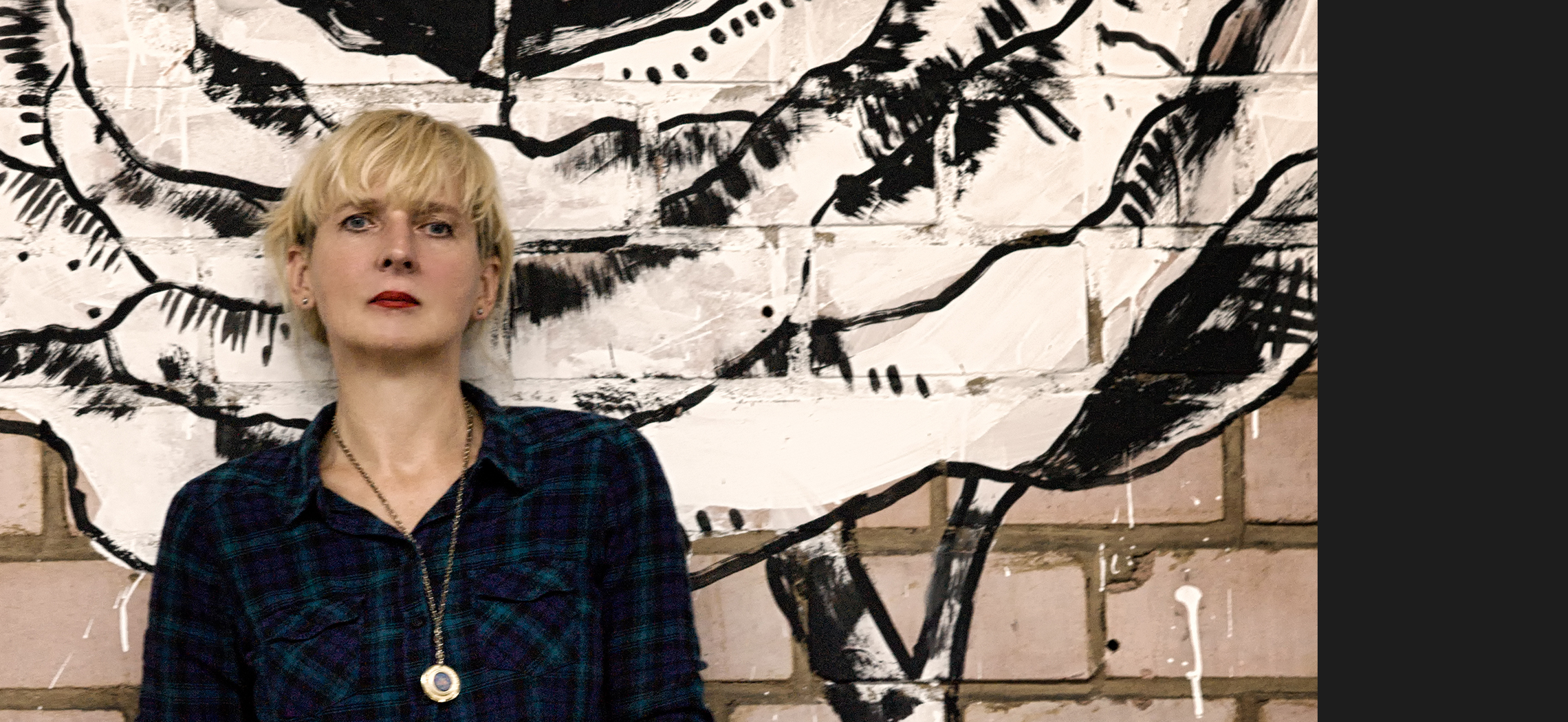A Portrait of director Christina Friedrich
Christina Friedrich © Vincenzo LaeraIn Christina Friedrich’s feature film ZONE, a girl opens a door to the cellar of her parents’ house, built on the ruins of a devastated Germany. The passage into the depths draws the viewer into a maelstrom of hypnotic imagery, whereby space and time become unstable and the living encounter the undead of history. In our conversation, she talks about the magical threshold that can be found in each of her films. “There is always this inner space that you have to open and enter in order to uncover the labyrinths beneath. It’s not about depicting the surface; it’s about breaking into territories where things are uncomfortable. Where dark and unspeakable things lurk – but they need to be retrieved. The magical space is an aspect of my thinking.
I want to narrate the simultaneity of the invisible and the visible on the screen. The state between being awake, dreaming and sleeping is the state of storytelling. This is a vertical narrative principle; to follow it, you need to cross a transitive space.”
In 2020, she founded the production company Madonnenwerk together with Franz Liebig. After her film HURENSÖHNE. EIN REQUIEM (2021), a drama set in a war-torn country, she continued her archaeological search for evidence in the film ZONE (2023). Together with 33 children, she has also made the film THE NIGHT IS DARK AND COLDER THAN THE DAY (2024). In a collective trance, she immerses herself in the world of children’s experiences. The premiere will take place this year at IFFR Rotterdam. Her current film THE DARKER THE NIGHT THE BRIGHTER THE STARS follows on from this, with the older children “surveying the upheavals of puberty and following their inner, emotional maps. They enter unknown territory, unfamiliar in its depths. The film ends on another star, a liminal place where new rituals emerge.” At the same time, she is working on two international co-productions.
Her previous films have been set in the Harz region, and she grew up in Nordhausen. “I am fascinated by the deep, dark Harz and the landscapes that intertwine there in wide lines of sight and chains of hills. There is so much hidden here, as a collective memory space. I cannot overlook the speed at which political erosion is occurring. I feel connected to this topography, its people and the region’s history. Because my story also began here.” In ZONE, Friedrich proves herself a chronicler of silence. “Silence has settled like mildew over everything, including history. That is the silence I grew up with, too. One you could even sense physically. I’m searching for the language of the body.” Language is something precious to her, something not infinitely available.
Friedrich’s stories are multidimensional visual compositions. “The power of the images is linked to the archaic landscape, but also to a narrative clarity and reduction.” Human beings, the undead, animals and plants are brought together in her animistic worlds, with the real and the magical existing side by side. Her poised images are the outcome of research and conversations during long walks through forests, libraries, art galleries, cities and peripheries. “Then I aim to fill the cinematic horizon with narratives that transcend time and space, bound to us, and recount the collision of characters who touch upon the very limits of society and the cosmos.”
There is always something unsettled about the characters in her works. “It is only their extreme sensitivity that enables them to go anywhere, to pass through any wall, or to disappear into the earth and then reappear. The ensemble is the heart of my work. I love working with people with whom I have shared experiences already, seeking to find new identities together with them. They are my research family. Bodies are fundamentally important here. I work with actors who have a deep understanding of physical language.”
And even if there is something of the end-time scenario about her films, they also reveal a utopian vein. “I don’t believe in redemption. In my universes, there is a space where moments of hope shimmer through and a kind of utopia comes into view. A society of new possibilities.”
Daniel Richter

